The week began with dramatic reports of climate damage. The Arctic is on fire, huge ice melts in Greenland and Alaska, record temperatures, Pacific Island nations demanding Australia prioritises rising sea levels ahead of our own strategic concerns in the region. Just the usual then – shocking reports of our ongoing climate disaster these days are as regular a part of our life as the Monday morning alarm clock.
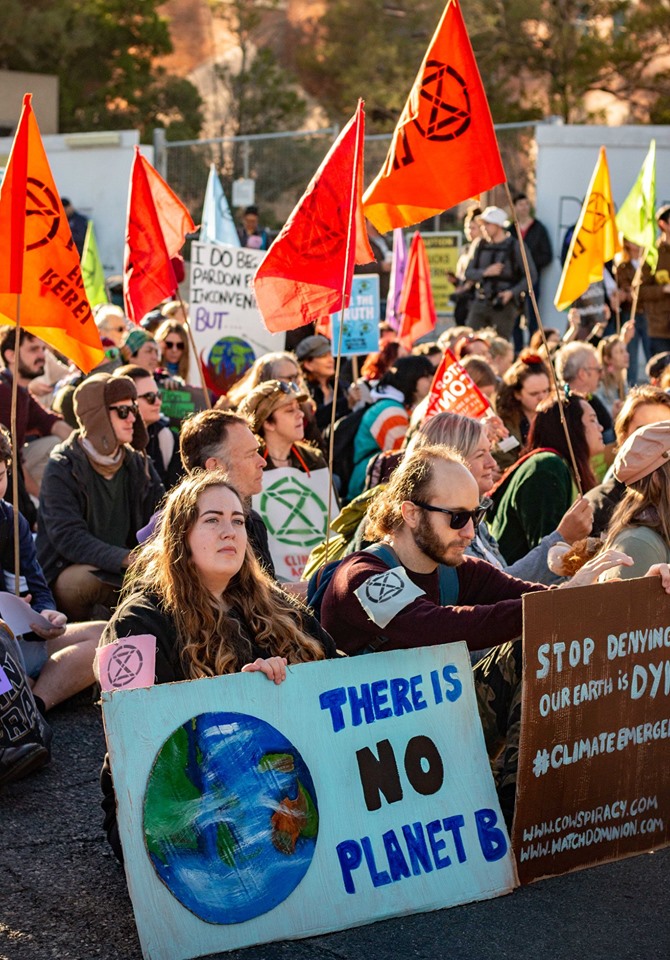
From then on though, climate stories of a different kind were filling the news. They were tales of people refusing to go along with our society’s slide into self-destruction and instead demanding roles as active participants in determining our own future. And they came from Queensland – the state which with its swing to the LNP in the federal election supposedly gave the government a mandate to ignore all climate warnings and excavate away our future.
On Tuesday in Brisbane, 72 people were arrested blocking city streets, calling for the government to declare a climate emergency as part of Extinction Rebellion’s day of rebellion. Biologists have described the time we’re living in as the planet’s 6th mass extinction – a historical event unseen in 66 million years. This one though is being driven by human activity and can be avoided if we take action. Extinction Rebellion say to do that we first have to disrupt the “business as usual” that is efficiently and profitably driving us into the fossil fuel abyss.
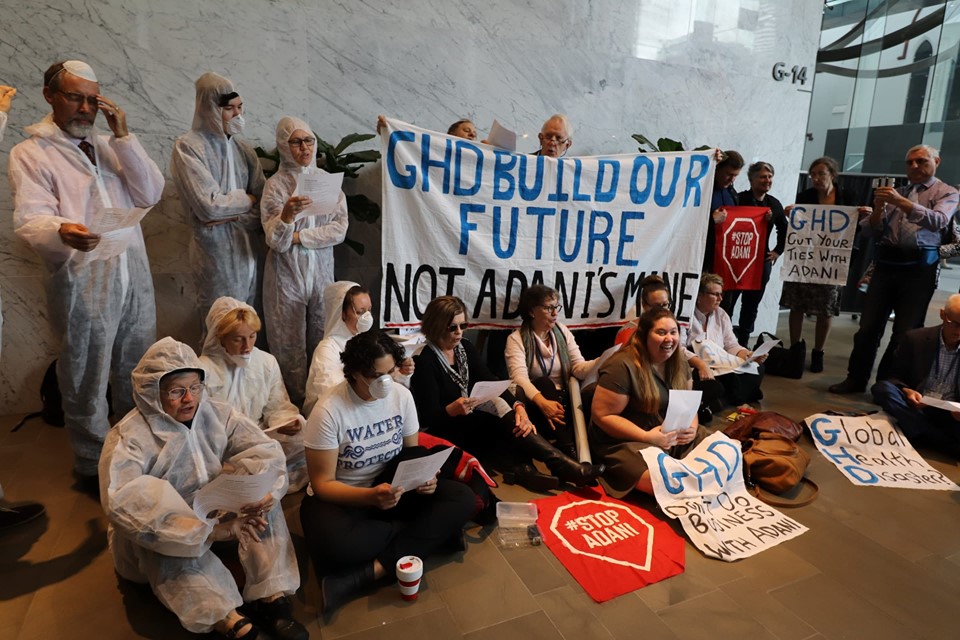
While dozens of those protesters were still in police custody the next day, they were joined there by 10 people who refused to leave the Brisbane office of engineering firm GHD. GHD hold a contract for Adani’s Carmichael mine, and this protest was part of a national week of action calling on them to stay true to their “commitment to sustainable development” and pull out of the carbon-intensive project. The company were quiet in response, but someone was paying attention – charity body Engineers Without Borders by the end of the week were saying they would cut ties with GHD unless they dropped the contract.
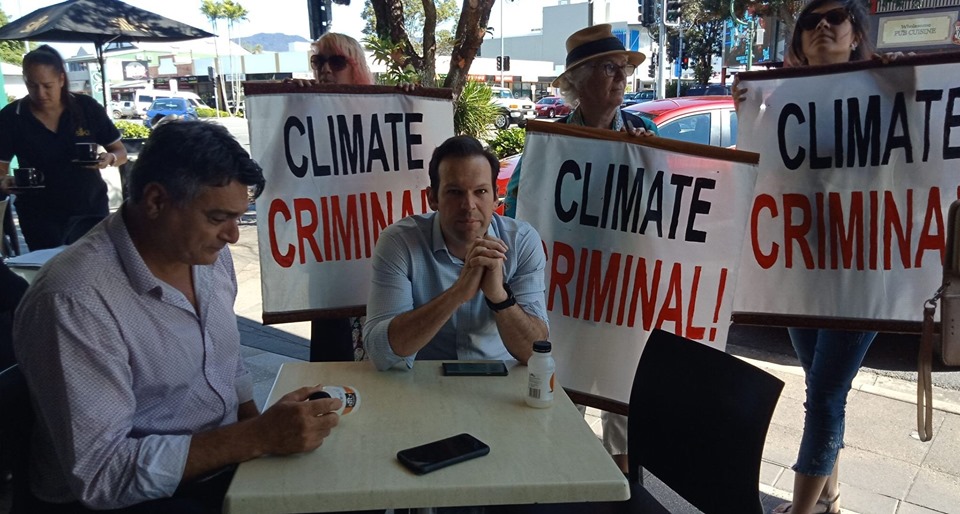
On Friday, political leaders from across the country were meeting in Cairns for the Council Of Australian Governments. This is the region supposedly set to economically benefit from Adani’s mine, but if the federal government came expecting thanks from the locals they would have been disappointed. Prime Minister Scott Morrison (he who famously brought a lump of coal into parliament) had his vehicle blocked, requiring police to arrest a protester to enable him to enter the conference. Resources Minister Matt Canavan meanwhile was ambushed by locals hoping to conduct a citizen’s arrest on him for climate crimes.
The Climate Council released a report this week that Queensland has been by far the most affected by climate change of any Australian state, but also has the most jobs in the renewable energy sector. And on Friday night people were back on the streets of Brisbane demanding climate action – this time organised by Uni Students for Climate Justice as part of co-ordinated nation actions.
As all this was happening, Adani were quietly beginning tree clearing on the Carmichael mine site. Presumably they were hoping not to be noticed in this flurry of climate activity. Dedicated people in central Queensland though have been keeping an eye on what’s going on there. And on Wednesday before Adani could clear any land; workers arrived to find two people suspended from poles tied off to and immobilising 17 clearing machines. They remained up there all day until being arrested at 3pm. One held a banner from their pole saying “Adani starts clearning; we keep resisting”.
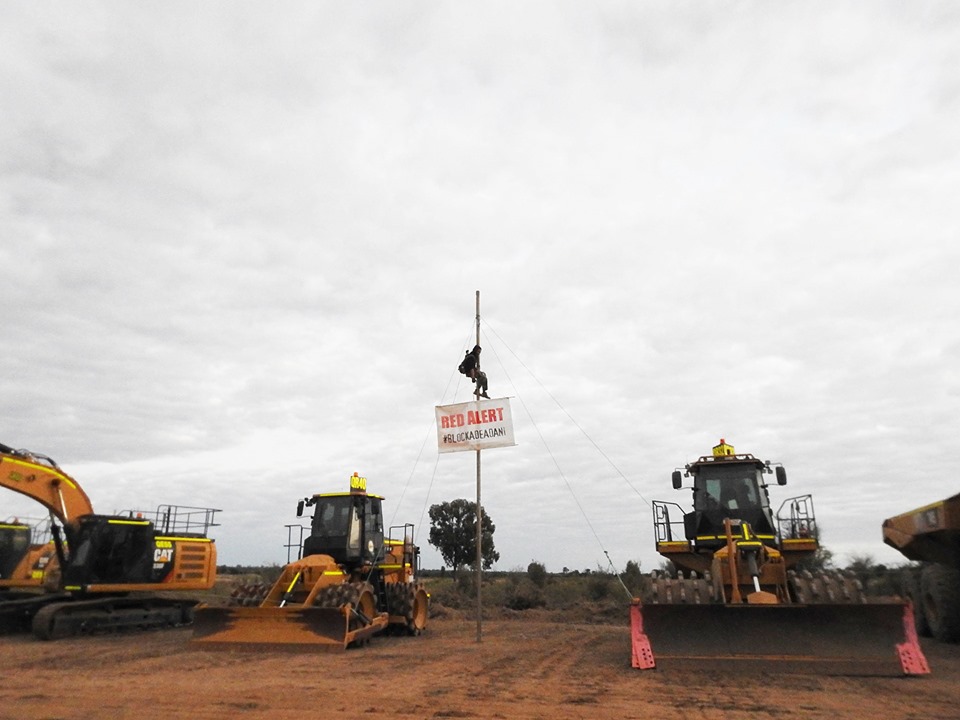
The other banner proclaimed “Red Alert: #blockadeadani”. At the same time as those workers were climbing back into their utes for an unexpected second morning coffee, activists on the frontlines of fossil fuel resistance were announcing a “red alert” – calling on all people who care about our climate to make their way to central Queensland and resist this project. Carmichael is more than just a mine – physically the infrastructure it builds would open up huge coal reserves in the Galilee Basin, and figuratively it stands for the gulf between the majority of Australians who want us to take the threat of climate seriously and those who think our export industries are a higher priority.
With tree clearing underway and a government acting as cheerleaders for the mining industry, it seems our last chance is a mass movement of people putting their bodies in the way of those machines and protecting native habitat, scarce water resources and our beleaguered climate. It might sound like a long shot, but this tactic has succeeded before. And if we can pull it off, we might then be one step closer on the journey of building together the kind of society that can benefit us all without destroying the planet. We will need as many people as possible, and time is not on our side. But the actions of the people of Queensland this week definitely show that the struggle is not over yet.

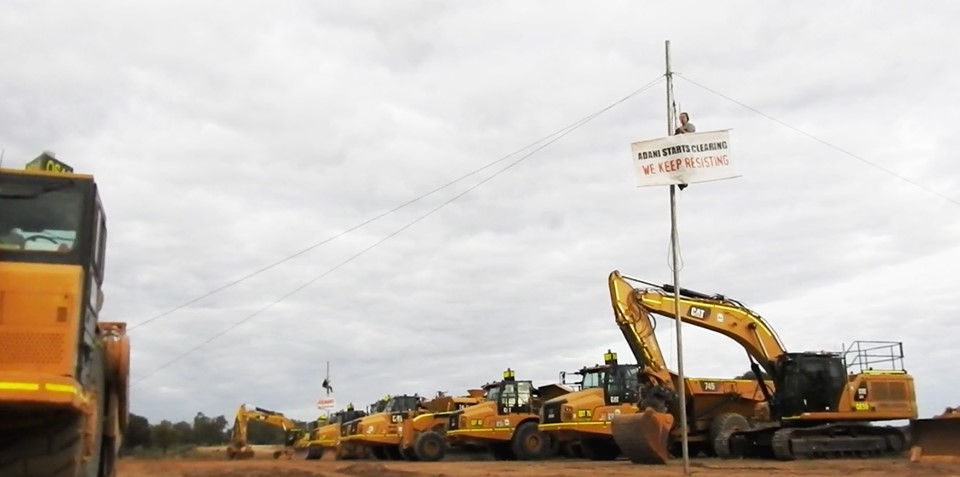
Recent Comments